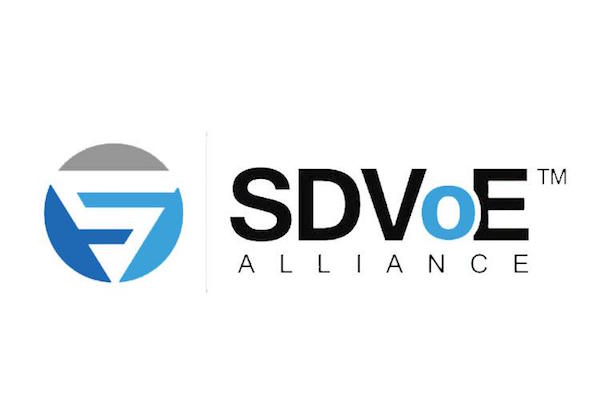
SDVOE ALLIANCE CELEBRATES SECOND ANNIVERSARY


The SDVoE Alliance announced its latest organisational milestones. Launched just two years ago at ISE 2017 with the goal of standardising the adoption of Ethernet to transport AV signals in professional AV environments, the alliance has grown to 40 member companies shipping 158 products. In addition, more than 300 SDVoE Certified Design Partners have been trained and certified. Member companies are poised to deliver upwards of 150,000 AV endpoints in the coming year. Deployments in education, healthcare, enterprise, entertainment, government and military environments are ongoing and many new products are set to reach production volumes in 2019.
“Heading into ISE 2019, we are thrilled to be having such a profound effect on the industry,” said Justin Kennington, president of the SDVoE Alliance. “Designers, integrators and end users are embracing the more open and standardised approach to signal management offered by SDVoE. We can clearly see that the days of dedicated matrix switchers and proprietary AV over IP are numbered!”
At ISE 2019 (Amsterdam, Feb. 5-8), demonstrations on the SDVoE Alliance stand 3-B150 will prove that SDVoE matches the quality and latency performance of the best matrix switches and that SDVoE offers advanced AV processing capabilities no other matrix can provide. Furthermore, demonstrations of SDVoE products from different manufacturers working together will be shown. In addition, a series of in-depth training sessions and case study presentations will be offered on Wednesday Feb 6 in room G109.
All AV distribution and processing applications that demand zero-latency, uncompromised video can benefit from SDVoE technology, which provides an end-to-end hardware and software platform for AV extension, switching, processing and control through advanced chipset technology, common control APIs and interoperability. SDVoE network architectures are based on off-the-shelf Ethernet switches thus offering substantial cost savings and greater system flexibility and scalability over traditional approaches such as point-to-point extension and circuit-based AV matrix switching.
SDVoE Alliance: www.sdvoe.org





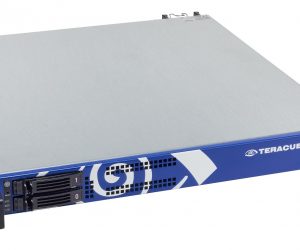
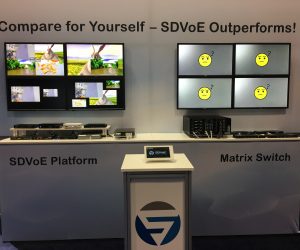


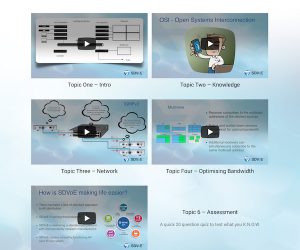


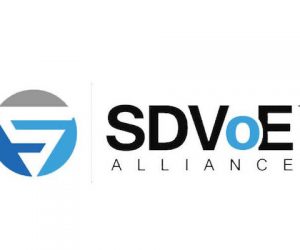


RESPONSES